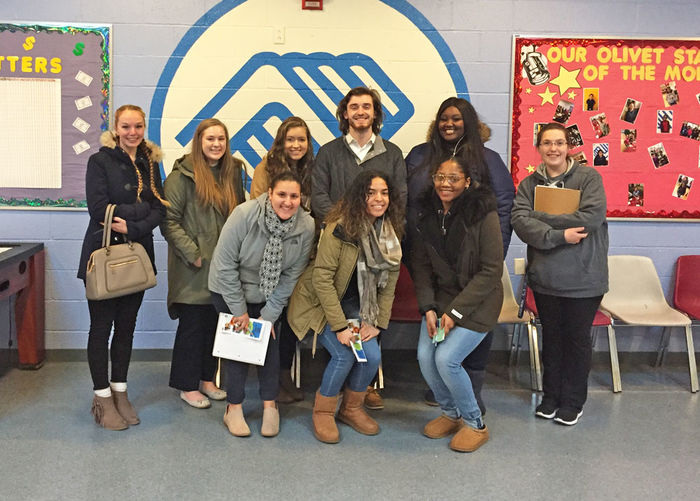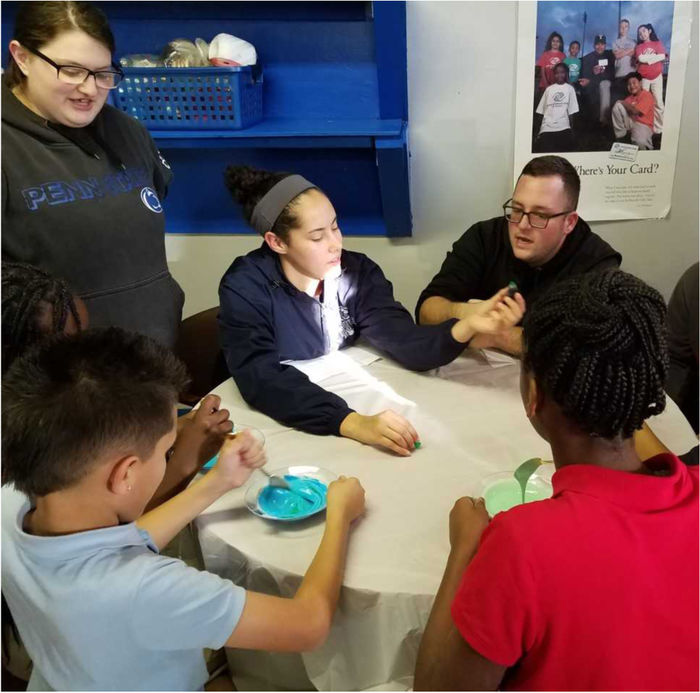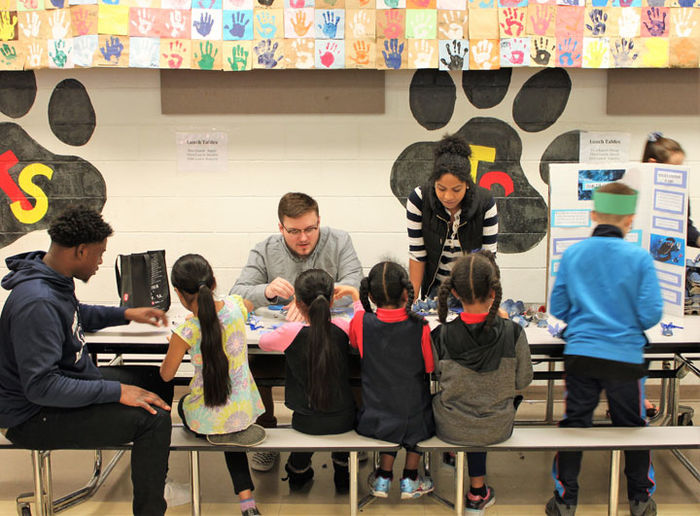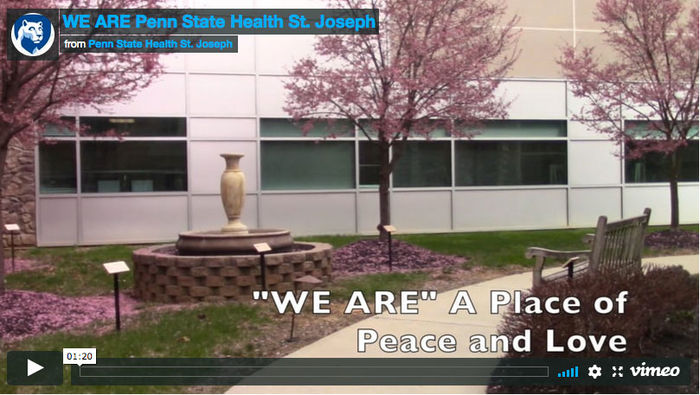
Penn State students engaging in community research partnerships get to use their classroom concepts and information in hands-on, real situations to improve communities and quality of life.

These projects involved students in challenging forms of research and communication outside classroom and library walls.
Students enrolled in Dr. Meghan Owenz’s Rehabilitation and Human Services 300 class learned about human service work from those who are currently doing it in Berks County. The class integrated academic knowledge with real-world experience by learning about typical RHS work settings (victim advocacy, probation and parole, school settings) and then visiting sites aligned with those settings. The class completed eight site visits and heard from three guest speakers during the semester. The students were then able to choose a site which matched their career goals and interests to complete fifteen hours of service learning. Students worked in many settings including after school programs, in schools serving students with disabilities, and with the older adult population.

Students in Alexa Hodge’s HDFS 287Y had an experiential introduction to how individuals both affect and are affected by the various cultural/community contexts in which they develop. Students identified and explored their own unique and shared assumptions, and the influence of those assumptions on their experiences and communities. By engaging with a local community groups/agencies for 15 hours of service learning, students become aware of the dynamics of how communities are formed and function.

Students in Dr. Jill Burk's CAS 222: Foundations of Community and Civic Engagement course learned the importance of civic engagement for a democratic society. Through a collaboration with the City of Reading, the students created educational programs focusing on city sustainability efforts. They shared their hands-on activities with community members, Tyson-Schoener elementary school students, and their families during community events.
Students in upper level Spanish classes with Dr. Maria Fellie worked on translations of English documents to Spanish as part of their curriculum to help the PSU St. Joe’s hospital & community.
 one of the videos created by Berks students fo Penn State Health St Joseph" width="700" height="395" />
one of the videos created by Berks students fo Penn State Health St Joseph" width="700" height="395" />
Students in Dr. Kesha Morant Williams CAS 398 Special Topics class Social Change Communication, partnered with Penn State Health St. Joseph on a service learning and community-based research project that resulted in three “ready to go-live” videos communicating the culture and uniqueness of Penn State Health St. Joseph. In this collaborative project, students and Morant Williams worked with Julia Nickey, Regional Director, Marketing & Communications to create videos (link below) representing the culture and focus of Penn State Health St Joseph. The videos have the potential to be used during recruitment of new hires, during new hire training, and for public viewing. The goal of each video is to communicate the culture PSHSJ and the essential role the hospital holds as a part of the community. Through narrative communication and storytelling, the students linked theory with practical application. By using interpersonal communication, the students obtained an understanding of organizational culture. In addition, the students gained skills that will be remarkably useful as they enter the workforce.
Students in Dr. Nathan Greenauer’s Psych 301: Basic Research Methods in collaboration with the Department of Public Works (DPW) are working to identify sociocultural and environmental factors contributing to littering in downtown Reading. Currently, 13 student-led projects focus on topics such as the role of school and youth programs in the city and the relationship between residents’ sense of belonging and the diffusion of responsibility with regard to littering. They will continue their research next fall PSYCH 407: Advanced Research Methods (this is a required sequence for all Applied Psychology majors). The presentation of actionable recommendations to the city is anticipated in November. DPW personnel have attended several classes, participated in the research development process, and learned about the diversity of factors potentially influencing and impacting city residents. Conversely, students have had regular contact with DPW personnel outside of the class and have learned about issues of public administration and urban planning.

Students help develop Community Benefits Report